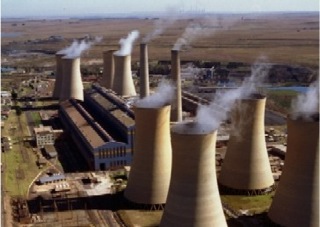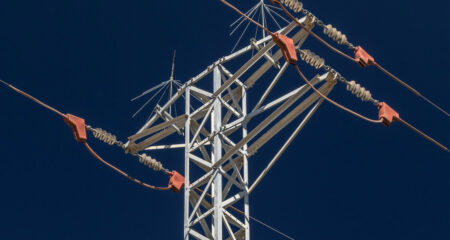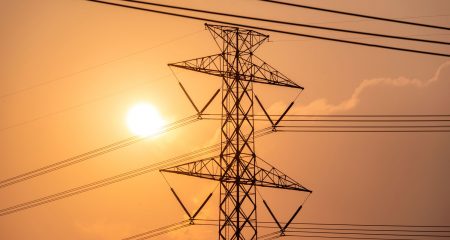 The National Energy Regulator of SA’s (Nersa’s) decision on Eskom’s tariff increase application on Wednesday will, on average, double the price of electricity over the next three years.
The National Energy Regulator of SA’s (Nersa’s) decision on Eskom’s tariff increase application on Wednesday will, on average, double the price of electricity over the next three years.
The announcement that Nersa was granting the power utility a 24,8% tariff increase for 2010, 25,8% for 2011, and 25,9% for 2012, aroused virulent anger with little positive comment emerging.
Nedbank economist Carmen Altenkirch said this would almost double the price of electricity for the man in the street using 600kWh/month.
“And the middle classes — who use more than 600kWh/month — will be paying more than double for their electricity over the next three years,” she said.
Earlier, making the announcement, Nersa chair Cecilia Khuzwayo insisted the increases were needed to improve Eskom’s capacity and keep it running.
She said the decision was based on all public and government inputs, but conceded that in light of the recent recession jobs would be lost.
However, in the long-term, electricity fed the economy and would create more jobs.
Eskom had asked for an increase of 35%/year for three years to help raise funds for a R385bn power expansion programme.
Khuzwayo said Nersa was giving Eskom what it needed, not what it wanted. “We want to ensure that Eskom is efficient in the short- and the long-term. We looked at the reevaluation of assets to ensure that it’s sustainable based on a five-year period.
“Electrification of the country is on top of government’s list. Our economy is highly dependent on electricity … electricity is [the] oxygen of the country; it provides stimulus for development for the economy.”
Khuzwayo said that in studying Eskom, Nersa took into consideration its cash flow, primary energy issues, operating expenditure and asset base, and the impact on the poor.
The average standard price of electricity will rise to 41,6c/kWh in 2010/11, 52,3c in 2011/12 and 65,6c in 2012/13.
Reacting to the announcement, the Congress of SA Trade Unions (Cosatu) called the hikes — more than four times the current rate of inflation — “totally unacceptable”.
Spokesman Patrick Craven said Cosatu would “not shrink” from mobilising its members and the public to embark on strike action and protests.
Craven predicted the economy would be hit by a rise in inflation, jeopardising its chances of recovering from its first recession in 17 years. “Many businesses which are already struggling to survive will not be able to afford such a massive increase in one of their biggest running costs.”
The Federation of Unions of SA (Fedusa) was “utterly outraged and disappointed” over the hike. “Fedusa will be making every effort to call for a review on the approved increases and has previously suggested that a new funding model for Eskom be reviewed so as to not expect the workers and the poor to pay for the mistakes of Eskom’s bad management of the past,” general secretary Dennis George said.
The National Union of Metalworkers of SA called on the ANC and its alliance partners to reject the increases. “These tariffs are going to exacerbate job losses and negate government’s efforts of creating decent work in the midst of high cost of living and widening income inequalities among the rich and the poor,” spokesman Castro Ngobese said.
However, the ANC congratulated Nersa for “applying its mind on” Eskom’s increase proposal. The decision was a vast improvement on the original proposal by Eskom of 35% over a three-year period.
“Though we congratulate Nersa, we should at the same time state that the electricity tariff increases remain high and require other interventions to reduce the endemic poverty in our country,” spokesman Jackson Mthembu said.
The SA Chamber of Commerce and Industry (Sacci) also warned of vast job losses. “Energy constitutes a major input cost for a large proportion of businesses. The increase will probably have an adverse impact on investment in production,” Sacci said in a statement.
“Sacci estimates that approximately 250 000 jobs will be lost as a consequence, and it will be a factor in CPI [consumer price index] remaining outside the target range.”
But, Business Unity SA said it was buoyed that an increase of “only” 24,8% had been approved. “Twenty-five percent is what the [South African] Reserve Bank has been saying would be absorbed by the economy,” said chairman Raymond Parsons.
Opposition parties said the hikes would result in consumers paying for the failures of the ANC, and would raise funds for the ruling party through its part-ownership of Hitachi Power Africa.
According to media reports, the ANC is set to earn billions of rands through tenders given by Eskom to Hitachi. The ANC’s investment company Chancellor House owns 25% of Hitachi.
Energy minister Dipuo Peters said she “respects” the “necessary” immediate increase of 24,8%. “It has become necessary to conclude the price path for the electricity industry to eliminate the uncertainty around the funding of the capital programme for the sector,” Peters said.
Eskom itself, said it had “noted” Nersa’s announcement and would make further comment on the determination and its specific implications later. — Sapa
- Subscribe to our free daily newsletter
- Follow us on Twitter or on Facebook




